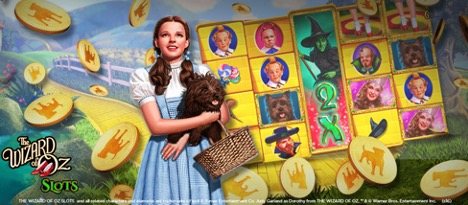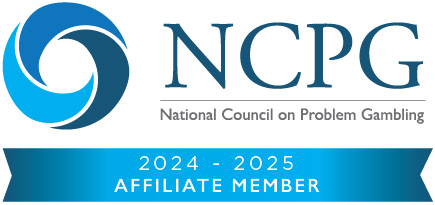[et_pb_section fb_built=”1″ _builder_version=”4.7.4″][et_pb_row _builder_version=”4.7.4″ _module_preset=”default” custom_margin=”0px||||false|false”][et_pb_column type=”4_4″ _builder_version=”4.7.4″ _module_preset=”default”][et_pb_divider _builder_version=”4.7.4″ _module_preset=”default”][/et_pb_divider][et_pb_text _builder_version=”4.7.4″ _module_preset=”default” custom_margin=”-20px||||false|false”]
- Scratch and Win Games Aren’t for Kids – Gratitude-filled crisp fall days that lead into the anticipation of holiday cookies, twinkling lights, and gift giving is what I live for. This is most definitely one of my most favorite times of the year. However, I do recognize that it is not the case for many people.
- ANNOUNCEMENT: Your End-of-the-Year Donations Are Now Matched -The Mass. Council Board of Directors have generously offered to match all end-of-the-year contributions to the Council, up to $7,000! Now you’re able to effectively double any contribution you make to us.
- Are Social Casino Games Grooming Children for real life Gambling? [ – Social casino games (SCG) are free-to-play gambling-like games found on social networking sites that make their money from in-app purchases. Because they are not considered gambling in the legal sense, these games have no marketing restrictions and are available on mobile phones everywhere.
- Who is B.F. Skinner and What Does He Have Too Do With Gambling? – If you took Psychology 101, you have probably heard of B.F. (Burrus Frederic) Skinner (b. 1904 – d. 1990). If you haven’t, you may still be familiar with some of his theories, specifically operant conditioning. This theory suggests that through a series of rewards and/or punishments, you can affect behavior.
- Checkout our Upcoming Events & Trainings
[/et_pb_text][et_pb_divider _builder_version=”4.7.4″ _module_preset=”default”][/et_pb_divider][/et_pb_column][/et_pb_row][et_pb_row _builder_version=”3.25″ background_size=”initial” background_position=”top_left” background_repeat=”repeat”][et_pb_column type=”4_4″ _builder_version=”3.25″ custom_padding=”|||” custom_padding__hover=”|||”][et_pb_text _builder_version=”4.7.4″ background_size=”initial” background_position=”top_left” background_repeat=”repeat”]
Scratch and Win Games Aren’t for Kids
 Gratitude-filled crisp fall days that lead into the anticipation of holiday cookies, twinkling lights, and gift giving is what I live for. This is most definitely one of my most favorite times of the year. However, I do recognize that it is not the case for many people. Some people dislike the frenzy of it. Some people dislike the cold and the dark. Others miss their loved ones. And many people just simply hate to shop.
Gratitude-filled crisp fall days that lead into the anticipation of holiday cookies, twinkling lights, and gift giving is what I live for. This is most definitely one of my most favorite times of the year. However, I do recognize that it is not the case for many people. Some people dislike the frenzy of it. Some people dislike the cold and the dark. Others miss their loved ones. And many people just simply hate to shop.
I get it, especially in the middle of a pandemic, why some people hate to shop. They don’t like crowded stores, they get overwhelmed online, or they just don’t know what to buy. However, the easy way out that many people seek is one stop shopping or the gift “no one will return” — scratch tickets.
Although the Mass. State Lottery is the most profitable in the world per capita next to only Singapore, it spends very little on advertising. They don’t have to—most people in Massachusetts buy scratch tickets, especially at the holidays, without really thinking about it. We’d encourage you to put a bit more thought into your gift giving this year, especially when it comes to the kids on your list.
Again this year we have signed on to the McGill University International Centre for Youth and Gambling and The National Council on Problem Gambling (NCPG) Campaign “Lottery Tickets Aren’t Child’s Play” to help promote that no child, under the age of 18, should ever be given, purchase, or return a lottery ticket. It is not appropriate, and if they win (and it doesn’t take much for a win to feel like a “big” win to a child), it could send them down a path of chasing that euphoria or faulty thinking about them being “lucky” or “good at gambling” when it is simply a game of chance. In addition, it is important to not expose them to child-like symbols such as “Frosty the Doughman” on scratch tickets so that they somehow believe these scratch tickets are children’s toys or activities that can later be purchased at unattended lottery terminals. You wouldn’t put a small cocktail in their hands, so we recommend that you similarly stay away from gifting gambling products to youth.
In addition, I’d like to remind you that kids are not the only vulnerable populations for whom scratch tickets are inappropriate gifts. Please consider healthy alternatives to gambling products when considering gifts for your friends and family members, especially if you are unaware of their mental health or socioeconomic stability—a grocery store gift card or credit to a local business will guarantee an actual gift under the tree without putting someone’s health at risk. Plus you’ll have shown a bit more attention to their needs and wants for the season.
Happy Holidays to all!
Marlene D. Warner,
Executive Director
ANNOUNCEMENT: Your End-of-the-Year Donations Are Now Matched
The Mass. Council Board of Directors have generously offered to match all end-of-the-year contributions to the Council, up to $7,000!
Now you’re able to effectively double any contribution you make to us. https://macgh.org/donate/
Your support is more important now than ever. As the Commonwealth is poised to expand legalized gambling once again in the state, the funding for our 24/hr gambling HELPLINE, which has existed since the 1980’s, has been eliminated.
The Mass. Council not only has long been seen as the leader in the State of Massachusetts in problem gambling services, but we have been the leading organization in the nation in providing support and education to those most in need.
Despite this cut, the Mass. Council continues to run the program, and are working to identify new funders. Ultimately, we’ve absorbed most of the costs to running the HELPLINE internally. Our HELPLINE number is printed on millions of MA lottery tickets, and individuals have counted on someone to answer the call for decades. And with your help, this important service will continue.
With your support and contribution, we can better ensure that no call for help goes unanswered. Please, consider supporting the HELPLINE, and get your contribution matched by the Board of Directors! https://macgh.org/donate/
Are Social Casino Games Grooming Children for real life Gambling?

Social casino games (SCG) are free-to-play gambling-like games found on social networking sites that make their money from in-app purchases. Because they are not considered gambling in the legal sense, these games have no marketing restrictions and are available on mobile phones everywhere. International research has suggested that there is cause for concern. ”Gambling-like” games on social media may groom children for real life gambling by teaching them how to gamble and giving them the sensation of “early wins”, a solid predictor of future problem gambling. Research also supports the notion that social casino games may act as a gateway to gambling for a subset of users.
One of the appeals of SCG is that the industry ensures the games never get stale. Interest and excitement is maintained through a high level of game turnover. Of the 1166 social casino games available in February 2020, only 47 were on the market in 2012. In addition, the vast majority of SCG ratings show an age rating of 12+ but the reality is that the graphics and imagery used may appeal to an even younger crowd. Teens may be especially interested as SCG allows them to message friends to join their games, share their wins and even stream their play on Twitch. In Australia, there is so much concern about the potential harm to children from social casino games that over the summer, a bill was introduced to ban them completely. Unlike many videogames which must be purchased and is often seen as a “family decision”, free social casino apps are easily downloaded by children into their phones to play. Countries like the US are slow to regulate so the onus remains on parents to stay informed on their children’s gaming habits and keep an eye out for games that could cause problems down the line.
Who is B.F. Skinner and What Does He Have Too Do With Gambling?

If you took Psychology 101, you have probably heard of B.F. (Burrus Frederic) Skinner (b. 1904 – d. 1990). If you haven’t, you may still be familiar with some of his theories, specifically operant conditioning. This theory suggests that through a series of rewards and/or punishments, you can affect behavior. In particular, Skinner is famous for his “Skinner Box.” He would place a lab animal, often a pigeon or rat, in a box with reward and/or punishment mechanisms to study their behavior. He was able to demonstrate that by using rewards such as food, he could reinforce what he wanted the subject to do – pull levers, push buttons and even read words or “play” ping pong in the case of the pigeons. He could also punish “wrong” behaviors through various mechanisms such as mini shocks or excessive changes in temperature. Ultimately, this helped to predict behavior.
What does this have to do with gambling? Everything. Skinner himself once stated, “A pigeon can become a pathological gambler, just as a person can.” MIT professor and anthropologist, Natasha Dow Schull, wrote a book called “Addiction by Design” that discusses how the psychology behind Skinner Box studies have influenced gambling, particularly slot machines. She also outlined her findings in a presentation that can be viewed on YouTube at: https://www.youtube.com/watch?v=ak0HE8Y_UJY
Slot machines are programmed using variable reinforcement, which is one of the specific reward schedules that Skinner introduced. Variable reinforcement means that the casino gambler knows that rewards are available but because they come on a variable, or random schedule – they can never be sure when the next one will arrive. Random rewards play into human psychology by conditioning us to continue playing because we are anticipating the next big hit. We do not want to “miss out” on what the next spin on a machine may bring.
This same variable reinforcement psychology is also prevalent in “loot boxes” embedded in many of the video games kids play today, including popular video games such as Fort Nite and Call of Duty. Loot Boxes are items in video games that may be bought for real-world money, but which provide players with a randomized reward of uncertain value. Just like with a slot machine, the prize is more than likely small, but the idea that a large one is possible may keep video gamers coming back for more. It is estimated that loot boxes generate more than $30 billion per year in revenue.
For most people, gambling and gaming is a safe form of entertainment. For 1-2% of adults and 2-4% of kids it can lead to a serious problem. We hope that by understanding some of the psychology behind the games, it will help you to keep gambling safe and healthy for you and your family.
Chelsea Turner, Director of Responsible Gambling
Amy Gabrila, Senior GameSense Advisor
[/et_pb_text][/et_pb_column][/et_pb_row][/et_pb_section]





